



|
 |

|
| No.204 | 7 April 2004 | Essential Information on an Essential Issue |
“ I support the general principles behind community development but I think that the organisation is going into areas that most New Zealanders would wonder about.” — Katherine Rich, National Party spokesperson on social services
 LAST Letter
LAST Letter
NEXT Letter  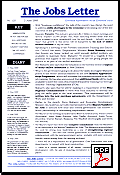 Download this issue as a PDF file
Index to Features
 LAST Diary
LAST Diary
NEXT Diary 
|
The high-level clamp-down follows a media feeding frenzy over several recent CEG grants, particularly those arising from last year’s Social Entrepreneur Fund which was found to be funding projects as diverse as an overseas “hip-hop” fact-finding tour, an overseas tour to study gay and lesbian sports participation, and the establishment of a regional Maori television station. Last year more than $700,000 was spent on the 53 Social Entrepreneurs grants, many of which involved overseas trips for the grant recipients.
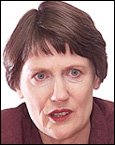 The Prime Minister, Helen Clark has criticised the Community Employment Group for failing to “stick to its knitting”. Clark described some of the funding decisions by CEG as “loopy”, or “odd, to say the least ...”, and she says: “It is unfortunate that good things get blasted or stigmatised by some of the stranger ones.” The Prime Minister, Helen Clark has criticised the Community Employment Group for failing to “stick to its knitting”. Clark described some of the funding decisions by CEG as “loopy”, or “odd, to say the least ...”, and she says: “It is unfortunate that good things get blasted or stigmatised by some of the stranger ones.”
Clark: “These latest grants coming to light have now excited the interest of the Cabinet from me down and we want to know that taxpayers’ money isn’t being wasted. I don't have a clear view on how these things happened except to say it would appear, on the surface, to be dealt with at too low a level of the Labour Department and therefore rather too loosely.” Clark says that the $115,000 grant to help establish a Far North Maori television station had come out of another CEG fund, which “... tells us that the problem is not unique to the Social Entrepreneurs Fund. Never in my wildest dreams would I have thought that CEG in the Department of Labour was trying to fund a television station. That’s what I mean about sticking to your knitting...” Minister of Social Development and Employment Steve Maharey says that the CEG Social Entrepreneur Fund had actually been frozen by the Government last year. In August, Maharey also initiated a review of the direction CEG was taking. In October, CEG was highlighted in the Audit Office review of departments which had funded projects associated with MP Donna Awatere Huata. The Audit Office complained about a lack of basic checks on nearly $2 million in grants and funds handed out by various Government agencies to organisations controlled by Awatere Huata and her husband. CEG gave them $636,000. When the review was released, Dr Buwalda initiated another investigation into the way CEG grants were made. Now Helen Clark has asked Dr Buwalda “to go through particular grants that have been funded through CEG and to look at compliance with current guidelines, the following of proper process and conflict-of-interest issues”. The results of this review are expected by the end of April. Clark: “Meantime I can tell you that no grant will be paid out unless it complies with Audit NZ approved grant guidelines and unless it is approved by the central Department of Labour grants committee which is chaired by the Secretary of Labour himself. In other words, some quite clear measures have been put in place to stop the silliness...”  National MP Katherine Rich, who made public the $26,000 hip-hop grant, says she is relieved that the government has chosen to tighten access to the public purse. Rich: “It’s a victory for taxpayers and for the Opposition. We have been calling for a review, a call that was largely ignored initially, but now the Prime Minister understands there is a fair amount of risk associated with dishing out taxpayers’ money. National MP Katherine Rich, who made public the $26,000 hip-hop grant, says she is relieved that the government has chosen to tighten access to the public purse. Rich: “It’s a victory for taxpayers and for the Opposition. We have been calling for a review, a call that was largely ignored initially, but now the Prime Minister understands there is a fair amount of risk associated with dishing out taxpayers’ money.
“ I will say one thing though: the principles that underpin the community employment programmes are sound. It’s just in the last couple of years it’s moved into areas that I don’t think benefit the community.”
“Instead of the recipients of grants being bashed up, I do think the recent controversy could mean this is a good time to completely re-assess where the agency itself is going ... and this is something that the Taskforce would be keen to be involved in. Our economy and the needs of employment have changed. We need to look at the appropriate community economic development bridges which give everybody a chance to flourish in the new economy. My observation is that some of the CEG staff need to look at whether they need to be in an economic development agency or a social service agency. We need CEG to be an excellent partner with us in community employment projects... and making better investments in the important work that needs to be done.” Charlie Moore: “CEG works with communities and groups on the margins. Our support is not just about funding. Although we have a budget of $22.2million to support community enterprise every year, we also provide specialist advice and project support to groups through 70 local fieldworkers throughout New Zealand. These fieldworkers use their expertise and networks to help communities and community groups take an idea and make it grow.” “ We often work with groups over a number of years. They start from behind – we don’t expect 100% success immediately or in all cases. A series of steps over several years can lead to new and ongoing jobs in that community...” He points out that the $750,000 annual fund is the only part of CEG funding granted to individual applicants. To be eligible, a proven social entrepreneur provides a comprehensive CV and information about their role as a social entrepreneur, project details and references. A national panel of government officials and non-government representatives then vets all applications against the Fund’s criteria. The successful applicants usually have a time frame for their project and a final report is requested.
WHAT WAS THE SOCIAL ENTREPRENEUR FUND?In 2003 the scope of the fund was widened to seek social entrepreneurs with an interest in not only economic and employment development but also in the areas of youth, welfare, health and education community development. When the Fund recipients were announced in July 2003, Steve Maharey remarked: “It is the champions — the guiding lights in our communities — who can think of bright ideas and inspire others to find solutions to health, education, social and employment problems. It is time to support these people and develop their potential so that the government moves from a ‘hand-out’ towards a ‘hand-up’ by investing in people who can make a real difference.” “Social entrepreneurs work outside the square and often are too busy to take time out to care for their own needs. This fund allows them to build their skills, research or develop concepts around their speciality, or attend educational programmes.”
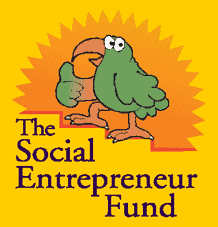
WHO WAS FUNDED AS A SOCIAL ENTREPRENEUR?
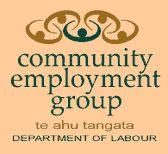
WHAT IS CEG FUNDING AROUND NEW ZEALAND?— Read Full CEG Funding List— Download Full CEG Funding List
SO WHAT HAPPENED?Katherine Rich and ACT MP Muriel Newman also drew attention to other CEG funding decisions including: — $115,000 for a Far North Maori group, Te Reo Irirangi o Te Hiku o Te Ika, to set up a regional television station. The group is managed by Hone Harawira, son of veteran activist Titewhai Harawira. Rich points out that the same group has also successfully applied for other grants from CEG. — $7,000 for two people to travel to the United States to study ways of encouraging more gay and lesbian Maori and Pacific Islanders to take part in sports and cultural activities. — $14,000 for two people to travel to the netball world champs in Jamaica to lobby for the inclusion of a Maori team in future tournaments. — $15,000 for a Buddhist group to conduct a feasibility study into meditation and education camps. — $3,700 to visit art and craft outlets in Melbourne. — $1,971 to pay for 12 people to attend a hip-hop summit in Auckland. — $1,800 to develop teamwork in a darts and cultural society — $40,000 to sort out the Ratana archives and create a bibliography of the spiritual makeup of Maori — $10,000 to establish a network of Maori artists to work on cruise ships around New Zealand. — $15,000 to complete a first-year course for a graduate diploma in economic development
THE FUND RECIPIENTS RESPOND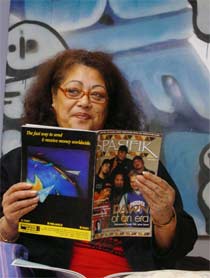 The Social Entrepreneur Fund recipients quickly defended their projects to the media and to their communities ... The Social Entrepreneur Fund recipients quickly defended their projects to the media and to their communities ...
— Fuarosa Tamati says she received the CEG grant to travel in order to trace the origins of New Zealand hip-hop. Tamati told the Christchurch Press: “I think the Social Entrepreneur scheme shows great vision. In 10 years time there will be a very high population of young Polynesians moving forward, and we need to have jobs there for them. Hip-hop and performing arts are a great industry for that, because (Polynesians) are passionate about them. Those who are criticising us should get off our case, and go and do some real work. We are here to raise the bar, create employment opportunities, and we are here for the long-haul. I don’t think $26,000 is too much money to invest in our young people’s future...” — In a written answer to a question in the House, Minister Steve Maharey said that the Tamatis had reported “that they had gained a more in-depth knowledge of the genre and the industry and its place in youth development and its impact on Pacific youth in the US”. Since returning they had established performing arts and creative enterprise programmes for Pacific youth, and formed networks which would help organise future events and exchanges of young Pacific hip hop talent between New Zealand and the USA. — Elizabeth Kerekere of Porirua attended the Federation of Gay Games annual meeting in Chicago in November with her partner Alofa AioNo. She told The Dominion Post that it was a good investment as she found new ways of encouraging gays and lesbians to participate in sport, art and cultural events and that her research could help any group wanting to encourage participation in its events. — Philip Patston, who describes himself as New Zealand’s only gay, vegetarian, pierced, wheelchair-using comedian, used his $30,000 CEG grant to visit disabled arts festivals in England and Australia in September last year. As founder of the International Guild of Disabled Artists and Performers and managing director of Diversity Works, he says he had always wanted to get international disabled acts to New Zealand for a show. Patston told the New Zealand Herald : “Without wanting to sound like a bleeding-heart liberal, I think you do get caught up into this thing that it is only okay to spend money if it’s going to make a profit. You have to invest in social philanthropy. Even with the hip-hop thing, kids who are getting into hip-hop and dancing and singing are not the ones who are out doing stuff because they are bored.” — Lynne Renwick of Te Aroha went to Melbourne to visit art co-operatives, museums and other community centres, and to research multi-media presentations for possible use in Te Aroha. Renwick: “For somebody like me who is involved in the community so heavily, just to be able to step back and look at what people elsewhere are doing is actually really important. It showed me ideas for development and I was happy with what I achieved. The things I learned we have already started to put into practice.”
We are funded by sustaining grants and donations. Yes, you can help.
|